Breast Reconstruction in Vilnius
Search and Compare the Best Clinics and Doctors at the Lowest Prices for Breast Reconstruction in Vilnius

Find the best clinics for Breast Reconstruction in Vilnius
With Medijump you can browse 3 facilities offering Breast Reconstruction procedures in Vilnius. The cheapest price available is $6,348 in Vilnius. And for the cheapest price globally, prices start from $477 in India.
Breast Reconstruction in Lithuania
Price: $ 6,348
Breast Reconstruction in Vilnius
Price: $ 6,348
India offers the best prices Worldwide
Price: $ 477
From 3 verified reviews
Lukas Vaišys, 11 March 2020
I recommend, very good professionals.
From 42 verified reviews
Ieva Žentelytė, 15 September 2020
Thanks to surgeon A. Sklepavičius for taking care of his patients, professionalism and the fact that He heals people, discovers diseases. I was lucky to entrust my problems to this Doctor in capital letters. Happy patients and clinic with a doctor like A. Sklepavičius.
From 10 verified reviews
AGNĖ KULBYTĖ-PETRAUSKIENĖ, 23 December 2019
I have visited many times, doctor dermatologist Justė Kantauskaitė - a great specialist, left a wonderful impression both as a person and as a specialist in her field. Next time I would pick her again. My daughter also really enjoyed it!
Compare Before & After Photos of _procedure_photos.phpBreast Reconstruction
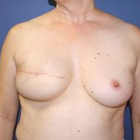
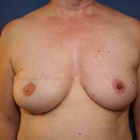
Front view
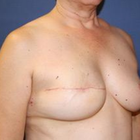
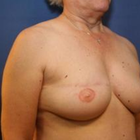
Half-side view
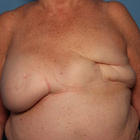
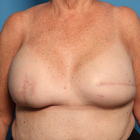
Front view
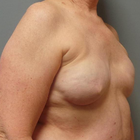
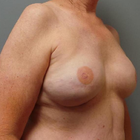
Half-side view
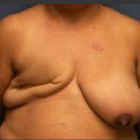
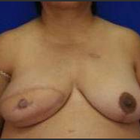
Front view
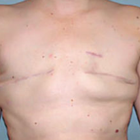
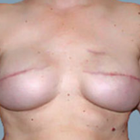
Front view
WHY US?
At Medijump, we're making medical easy. You can search, compare, discuss, and book your medical all in one place. We open the door to the best medical providers worldwide, saving you time and energy along the way, and it's all for FREE, no hidden fees, and no price markups guaranteed. So what are you waiting for?

Free

Best Price

Widest Selection

Risk-Free
What you need to know about Breast Reconstruction in Vilnius
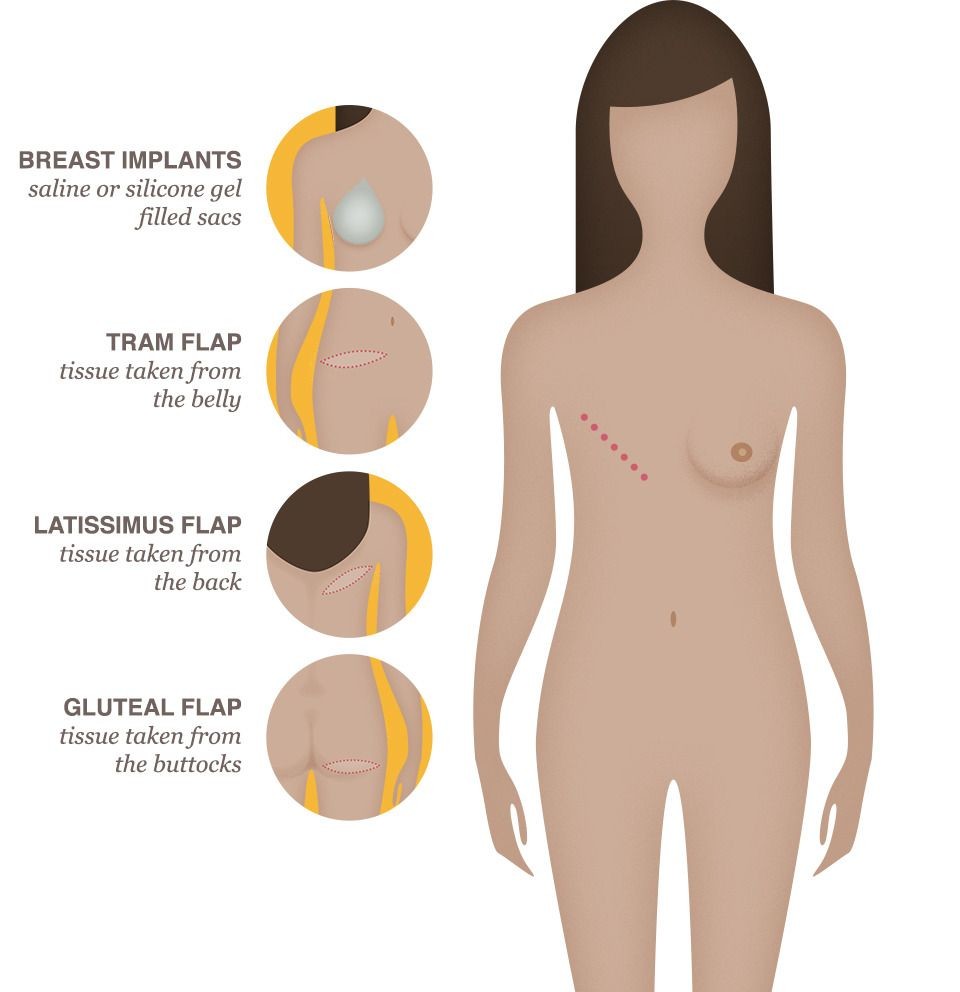
Breast reconstruction is a significant surgery undertaken to rejuvenate the physical form of a woman's chest after losing one or both breasts to cancer or another disease. In Vilnius, medical centres are well-equipped with top-tier talent in plastic surgery to facilitate this intricate procedure. Every woman's journey is different, and her treatment plan is personalized, considering her unique circumstances and needs.
It's heartening to know that breast cancer treatments like chemotherapy or radiation therapy aren't impeded by reconstruction. Moreover, this surgery doesn't spike the risk of cancer coming back. Undeniably, breast reconstruction is a major surgery with inherent risks, including chances of infection, complications with wound healing, and potential dilemmas related to implants.
What is the cost of Breast Reconstruction in Vilnius?
Undergoing surgery like Breast Reconstruction brings along a financial commitment. The expense varies extensively, depending on many factors like the complexity of the procedure, the medical professional performing the surgery, the hospital's facility, and the region, amongst others. Generally, the cost might range between $15,000 to $50,000, including multiple surgeries or intricate techniques within this estimate.
Thankfully, in many cases, insurance plans cover such surgical procedures, especially given mandates like the Women's Health and Cancer Rights Act of 1998 in the U.S. Still, out-of-pocket expenses associated with co-payment or deductibles can add up. It's recommended to navigate these aspects with your insurance provider and your chosen healthcare facility in Vilnius.
What does a Breast Reconstruction Procedure Involve?
Breast reconstruction generally happens in stages, starting with the most complex first, which may either occur at the same time as the mastectomy or later, based on the individual’s specific health conditions or treatment plan.
Two main techniques are employed in breast reconstruction. One is the use of an implant, saline, or silicone to recreate the breast shape. Two, autologous or flap reconstruction where tissue from the patient’s body like the abdomen or thigh is relocated to recreate the breast shape. The method selected is dependent on individual factors like the patient’s health, personal choice, cancer type, and stage.
After the primary surgery and post an adequate healing period, the surgeon performs a second procedure to recreate the nipple and areola. Later, to give it a natural look, the nipple-areola complex is tattooed. Remember that although it is a common procedure, complications might arise involving reaction to anaesthesia, bleeding, infection, poor healing or the need for further interventions.
How Long Should I Stay in Vilnius for a Breast Reconstruction Procedure?
Post-breast reconstruction surgery, patients typically stay in the hospital for two to five days. However, if the reconstruction was done immediately after the mastectomy, the stay could extend from three to six days.
Overall, a patient should expect to remain in Vilnius for approximately two weeks post-surgery. This allows enough time for necessary follow-ups and to address any complications, if they arise. As with any major surgical procedure, do not hasten the healing process.
What's the Recovery Time for Breast Reconstruction Procedures in Vilnius?
The recovery timeframe for breast reconstruction procedures in Vilnius varies from patient to patient. Generally, for implant-based procedures, patients may take about four to six weeks to recuperate before they return to normal routines. For more complex autologous techniques, particularly those using abdominal tissue, patients might require six to eight weeks for recovery.
Recovering patients need to temper their activities during this period. Avoid lifting heavy objects and defer strenuous exercise until your physician gives a clear signal. Medical assistance should be promptly sought if any discomforting symptoms like chronic pain, redness or swelling surface.
What's the Success Rate of Breast Reconstruction Procedures in Vilnius?
Medical success cannot just be measured in terms of complication-free postoperative progress or longevity of implants used in breast reconstruction. Patient satisfaction with their surgery, their psychological well-being following the operation, their perception of body image, and their quality of life post-surgery are equally important factors to consider. Studies indicate that between 85% to 90% of women who have undergone breast reconstruction are satisfied with the long-term results.
In Vilnius, dedicated hospitals and healthcare facilities strive to offer high-quality treatment, ensuring the best possible surgical outcomes using progressive technology and experienced professionals. Still, everyone's response to surgery varies, and outcomes depend on factors such as overall health, age, body type, and compliance with surgical advice.
Are there Alternatives to Breast Reconstruction Procedures in Vilnius?
Indeed, there are alternatives to breast reconstruction in Vilnius. The journey of every woman is unique and how she chooses to deal with the loss of a breast, or both, is a highly personal decision. Alternatives include:
- Breast Prostheses or Forms: They are silicone forms that imitate the appearance and feel of natural breast tissue. They come in diverse sizes, shapes and colours to closely match the woman's skin tone.
- Flat Closure: In this method, the surgeons sew up the chest wound smoothly, without constructing a breast mound. This option appeals to women who choose not to have more surgeries or body implants.
- Opting not to undergo reconstruction at all, also termed as "going flat: This method exhibits the woman's choice to live comfortably with her new body shape without artificial substitutes or further surgeries. It is a fully personal decision deserving respect and support.
Each of these options has pros and cons, and the choice depends on the woman’s personal preference, health status, lifestyle, and perception of her body. Regardless of the choice, it’s important to regularly monitor breast health and engage in practices that promote overall wellness.
What Should You Expect Before and After the Breast Reconstruction Procedure?
Before the surgery, comprehensive discussions with the surgeon will take place to understand treatment objectives, outcomes, and possible complications. Preoperative tests, lifestyle modifications, and nutritional advice may form a part of the preparatory process.
Postoperative care is equally important: discomfort, swelling, and bruising are normal and subside over time. Pain management strategies will be provided to help you manage discomfort effectively. Your surgeon will provide personalised guidance on caring for your surgical site, usage of medications, and physical activities.
What sort of Aftercare is Required for Breast Reconstruction Procedures in Vilnius?
The following points should be considered post-operation:
- Follow the instructions given by your doctor and take your medicines as and when prescribed.
- Consult a nutritionist for a diet plan. A healthy diet helps you recover faster.
- Do not wear a padded or underwire bra until allowed by your doctor.
- Use surgical bras in the early few days after the surgery.
- Avoid excessive unnecessary movement of your breasts.
- Do not lift heavy objects and children - it could stretch on your stitches.
- Change your bandage whenever it gets dirty. Germs can cause infection.
- Do not take a bath when the bandages are still intact. A wet bandage can also be the cause of infection.
- Abstain from sexual activity for at least 6 weeks.
- Take rest - give yourself time to recover.
How Do I Prevent Cancer from Recurring?
Preventing cancer recurrence largely revolves around a balanced, healthy lifestyle coupled with regular medical check-ups. Regular exercise, maintaining a healthy weight, and eating nutritiously can contribute to cancer prevention. Smoke cessation and limiting exposure to secondhand smoke are crucial for both prevention and postoperative recovery.
Regular breast self-examinations, as well as mammograms and follow-up visits, are critical for early detection of any recurrence. Stress management techniques like yoga, meditation, and spending time in nature can also play an essential role in overall health.
Your medical team in Vilnius is there to support you, offering advice tailored to your individual health status and medical history. Remember, proactive health checks are key to maintaining overall health and preventing the recurrence of diseases like cancer.
What is the ideal time to have Breast Reconstruction surgery after a Mastectomy in Vilnius?
The decision regarding when to have Breast Reconstruction following a Mastectomy in Vilnius is largely based on the individual's health status, treatment plan, personal preferences, and discussions with the oncology team. Breast reconstruction can be done at the time of mastectomy (immediate reconstruction) or at a later date (delayed reconstruction). Immediate reconstruction might offer psychological benefits and less overall surgery since both procedures are done together. Yet, if additional treatments such as radiation therapy are required post-mastectomy, opting for delayed reconstruction could be advisable to avoid risks posed by radiation to the new construct.
Remember that deciding on the timing of breast reconstruction is a personal choice and should be made in consultation with your healthcare providers. They can provide specific guidance based on your health condition and treatment plan.
How Will Breast Reconstruction in Vilnius Impact My Routine Mammograms and Breast Cancer Detection?
Breast reconstruction surgery may impact the way routine breast cancer screenings are conducted. After a mastectomy with or without reconstruction, women usually don't need routine screening mammograms on the treated side since all breast tissue has been removed. However, they would need routine mammograms for the untreated breasts.
If you've had reconstruction using your own body tissue, your surgeon or oncologist will guide you on whether or not you'll require mammograms on the reconstructed breast. Remember, mammograms can still be performed on reconstructed breasts, and self-breast exams should be a regular part of your health routine.
Whilst the information presented here has been accurately sourced and verified by a medical professional for its accuracy, it is still advised to consult with your doctor before pursuing a medical treatment at one of the listed medical providers
No Time?
Tell us what you're looking for and we'll reachout to the top clinics all at once
Enquire Now

Popular Procedures in Vilnius
Prices Start From $497

Prices Start From $208

Prices Start From $834

Prices Start From $500

Prices Start From $93

Prices Start From $85

Recommended Medical Centers in Vilnius for Breast Reconstruction

- Interpreter services
- Translation service
- Religious facilities
- Medical records transfer
- Medical travel insurance
- Health insurance coordination
- TV in the room
- Safe in the room
- Phone in the room
- Private rooms for patients available

- Interpreter services
- Translation service
- Religious facilities
- Medical records transfer
- Medical travel insurance
- Health insurance coordination
- TV in the room
- Safe in the room
- Phone in the room
- Private rooms for patients available

- Interpreter services
- Translation service
- Religious facilities
- Medical records transfer
- Medical travel insurance
- Health insurance coordination
- TV in the room
- Safe in the room
- Phone in the room
- Private rooms for patients available

- Interpreter services
- Translation service
- Religious facilities
- Medical records transfer
- Medical travel insurance
- Health insurance coordination
- TV in the room
- Safe in the room
- Phone in the room
- Private rooms for patients available

- Interpreter services
- Translation service
- Religious facilities
- Medical records transfer
- Medical travel insurance
- Health insurance coordination
- TV in the room
- Safe in the room
- Phone in the room
- Private rooms for patients available

- Interpreter services
- Translation service
- Religious facilities
- Medical records transfer
- Medical travel insurance
- Health insurance coordination
- TV in the room
- Safe in the room
- Phone in the room
- Private rooms for patients available

- Interpreter services
- Translation service
- Religious facilities
- Medical records transfer
- Medical travel insurance
- Health insurance coordination
- TV in the room
- Safe in the room
- Phone in the room
- Private rooms for patients available
Breast Reconstruction in and around Vilnius
About Vilnius
Vilnius is the capital of Lithuania and is also the largest city in the country, with a population of around 564,147. Vilnius was once referred to as the ‘Jerusalem of the north’ but the Jewish community was largely wiped out in WWII. The city does not hide its battle relics. Tourists will find museums dedicated to the Holocaust and preserved the KGB torture chamber. Other than its fascinating history, Vilnius also offers spectacular architecture, trendy bars, and hot-air balloons.
Vilnius is emerging as a medical tourism destination. Every year, medical tourism in Vilnius continues to expand and evolve. Medical treatments in Vilnius are gaining a powerful reputation among medical tourists. The vast majority of the medical tourists coming to Vilnius are from the Middle East, the United States, and Western Europe. Many tourists travel for Breast Augmentation or other cosmetic surgery. Kardiolita Hospital is one of the most popular medical facilities in the city. There are many reasons why local and international medical tourists come to Vilnius, including:
- Medical facilities with international standards such as JCI accreditation.
- Highly educated doctors and medical practitioners.
- Comprehensive diagnosis in just a single day.
- Foreign language speaking doctors and health care staff.
- Modern and secure equipment.
- Affordable prices for a wide range of medical treatment.
Popular Areas in Vilnius
Vilnius is a driving force behind Lithuania’s tourism sector. The city has affordable attractions, accommodations, and restaurants, Historical landmarks, extraordinary architecture, green spaces, and an array of cafes making the city a special place to visit.
- Palace of the Grand Dukes of Lithuania is located in the heart of Vilnius. The building has a Renaissance, Gothic, and early Baroque architectural styles. The reconstructed palace is now transformed into a museum with 4 exhibition tour routes related to the historical functions. A guided tour is in English, Russian, and German is available for tourists.
- Museum of Occupations and Freedom Fights (KGB Museum) is a museum with the darkest history in Vilnius. It is located in the former KGB building and preserved exactly how the KGB officers left the building. A museum is an excellent place for tourists who want to learn more about history.
- Antakalnis Cemetery in Vilnius is arguably one of the most interesting graveyards in Europe. The cemetery is the final resting place of Lithuanian leaders and locals lost to war. The most notable monuments are the Memorial of Red Army Soldiers and the monument of the victims of January 13, 1991.
- Gediminas’ Tower of the Upper Castle is the remnant of a brick castle built by the Duke of Lithuania, Vytautas Magnum. Tourists can get onto the top of the Gediminas Hill by foot or by the provided modern lift. While in the modern lift, tourists can see panoramic views of Vilnius along with the River Neris.
Weather and Climate in Vilnius
Summers in Vilnius is warm and dry, with occasional showers and chilly days. Summers are short, lasting for around two months from June to August. The average temperature in the summer is around 11 °C to 22 °C. Summers are usually the busiest time for the city’s tourism.
Although autumn is exceptionally beautiful and has many sunny days, the temperature will cool down rapidly during this season. It can get as low as -1°C in mid-November.
The winters are freezing when the average temperature plummets to -9°C. The temperature will remain below zero until March. Winters in the city can be an amazing time. However, it can be difficult in rural areas.
Spring usually arrives late in April and does not last very long. The temperature in Spring is cool and the green spaces are blossoming.
Getting Around in Vilnius
Vilnius International Airport is the largest airport in Lithuania that connects the country with European cities. It is the hub for air Baltic and Get Jet Airlines. The airport serves many major airlines, as well as budget airlines such as Ryanair and Wizz Air.
Tourists can take the airport taxis to the city center. The taxis can be found in front of the arrivals terminal. A ride to the city center should cost around 10 EUR to 18 EUR. The city bus is another option to travel to Vilnius city center. It is more affordable than taxis, with a single ticket costs around 1EUR.
Walking is the best mode of transportation for exploring the Old Town. A good portion of Vilnius’s attractions is located within walking distance. Buses and trolleybuses are also available, tickets cost 1 EUR which can be paid directly to the driver. Taxis are not very recommended because many taxi drivers are known to cheat foreigners. Uber is available.
Tourist Visas in Vilnius
European Union citizens, American, Canadian, Australian, and British can stay in Vilnius for up to 90 days. Citizens of other countries must apply and obtain a visa before entering Lithuania
The country is part of the Schengen Area, tourists who already hold a Schengen visa does not have to apply for a new visa to enter Lithuania. A passport valid for at least three months beyond the length of stay is required.
Additional Information
- Local Currency: Since Lithuania adopted the euro in 2015, the official currency is the euro. 1 USD is equivalent to 0.88 EUR.
- Money & Payments: Tourists can withdraw money from ATMs. Visa and MasterCard credit cards are mostly accepted in hotels and restaurants. Tourists can tip 10% in restaurants if the service is good. Always tip in cash even when you’re paying with credit or debit cards.
- Local Language: The official language is Lithuanian. Most people in the tourism area and the younger generation can speak English fluently. A large number of the population also speaks Russian and Polish.
- Local Culture and Religion: Christianity (specifically Catholic) is the major religion in Vilnius. Small groups of the population follow Judaism, Islam, and other religions.
- Public Holidays: Vilnius celebrates major Christian religious holidays. The city also hosts many annual festivals such as Capital Days in September, Culture Night and Trakai Medieval Festival in June, Street Musician’s Day in May, and Independence Day of the Republic of Uzupis in April.
Popular Searches
- Plastic Surgery in Thailand
- Dental Implants in Thailand
- Hair Transplant in Thailand
- Breast Augmentation Thailand
- Gastric Sleeve in Thailand
- Gender Reassignment Surgery in Thailand
- Laser Hair Removal in Bangkok
- Botox in Bangkok
- Dermatology in Bangkok
- Breast Augmentation in Bangkok
- Coolsculpting in Bangkok
- Veneers in Turkey
- Hair Transplant in Turkey
- Rhinoplasty in Turkey
- Stem Cell Therapy in Mexico
- Rhinoplasty in Mexico
- Liposuction in Mexico
- Coolsculpting in Tijuana
- Rhinoplasty in Korea
- Scar Removal in Korea
- Gastric Sleeve in Turkey
- Bone Marrow Transplant in India
- Invisalign in Malaysia
- Plastic Surgery in the Dominican Republic
- Tummy Tuck in the Dominican Republic
- Plastic and Cosmetic Surgery in Poland
- Rhinoplasty in Poland
- Hair Implant in Poland
- Dental Implants in Poland
- IVF in Turkey


